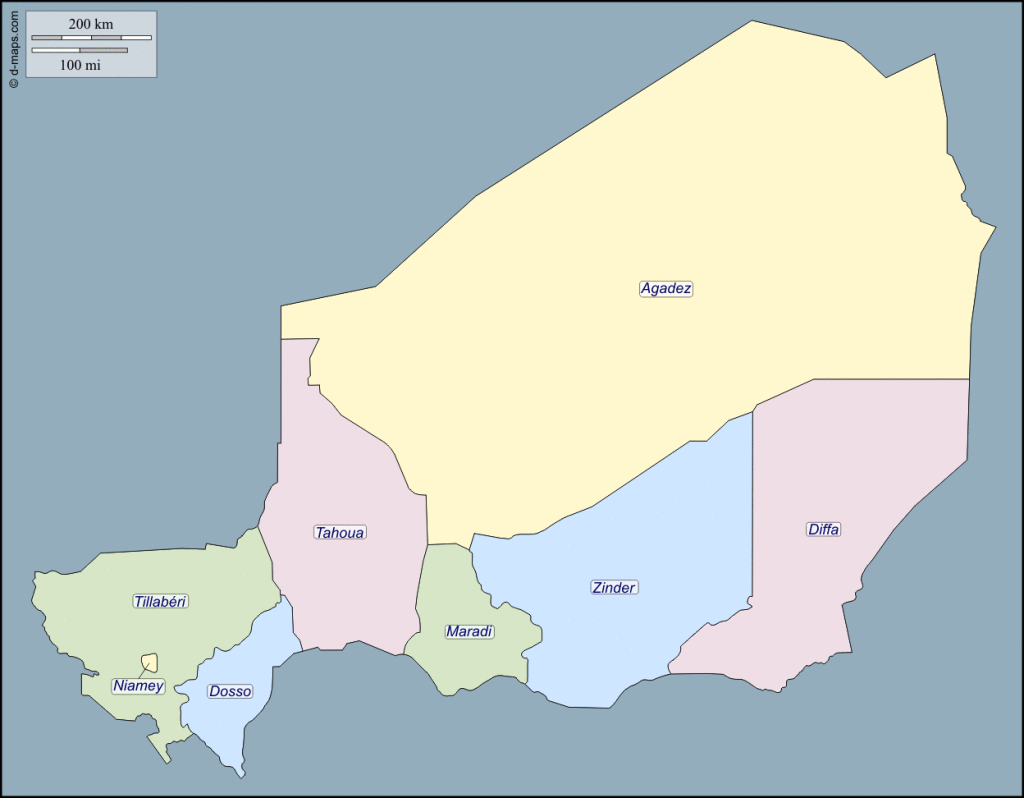Niger has three types of constituencies for elections to the National Assembly (Assemblee nationale): ordinary, special, and diaspora. Ordinary constituencies correspond to the seven regions of Niger and the capital district of Niamey. All special constituencies are single-member constituencies reserved for national minorities. Beginning in 2016, Nigeriens living outside of the country could elect MPs from a new diaspora constituencies.
The following table shows the apportionment of seats:

NIGER 1 (1993-9)
In 1993, the National Assembly had 83 members with 75 allocated to ordinary constituencies and 8 to special constituencies. There was no legal threshold to win seats.
In ordinary constituencies, the largest remainder system of proportional representation with a Hare quota was used to allocate seats off of closed lists within each constituency. The Hare quota equals the total number of valid votes in a constituency divided by the number of mandates in the constituency. Seats were awarded for multiples of full Hare quotas with any leftover seats given out to parties in descending order of remainder votes (i.e. votes not used towards a full Hare quota and seat). Lists were closed.
In special constituencies, the winner was determined by the single-member plurality electoral system.
1993 CNE (National Electoral Commission) Report with Election Results
1996 Niger Electoral Code
Source: Electoral Code and Matthias Basedau, “Niger” in Dieter Nohlen, Michael Krennerich, and Bernhard Thibaut, eds., Elections in Africa (Oxford 1999), 677-96.
NIGER 2 (2004-2011)
The number of members of the National Assembly increased to 113 in 2004 with 105 allocated to ordinary constituencies and 8 to special constituencies.
2004 Niger Electoral Code (second version)
Niger Constitutional Court Arrêt No 56/04/CC/ME of 14 December 2004 with Election Results
EU Election Expert Mission to Niger Legislative Elections 2009
2010 Niger Constitution (English translation)
2010 Niger Electoral Code (second version)
Francophonie Mission Report on Presidential and Legislative Elections 2011
Niger Constitutional Court Arrêt no 009/11/CCT/ME of 16 March 2011 with Election Results
NIGER 3 (2016-)
The number of members of the National Assembly increased to 171 in 2004 with 158 allocated to ordinary constituencies and 8 to special constituencies. Additionally, Nigeriens living outside of the country elected 5 members from a new diaspora constituency.
Niger’s Administrative Regions and Constituencies:

